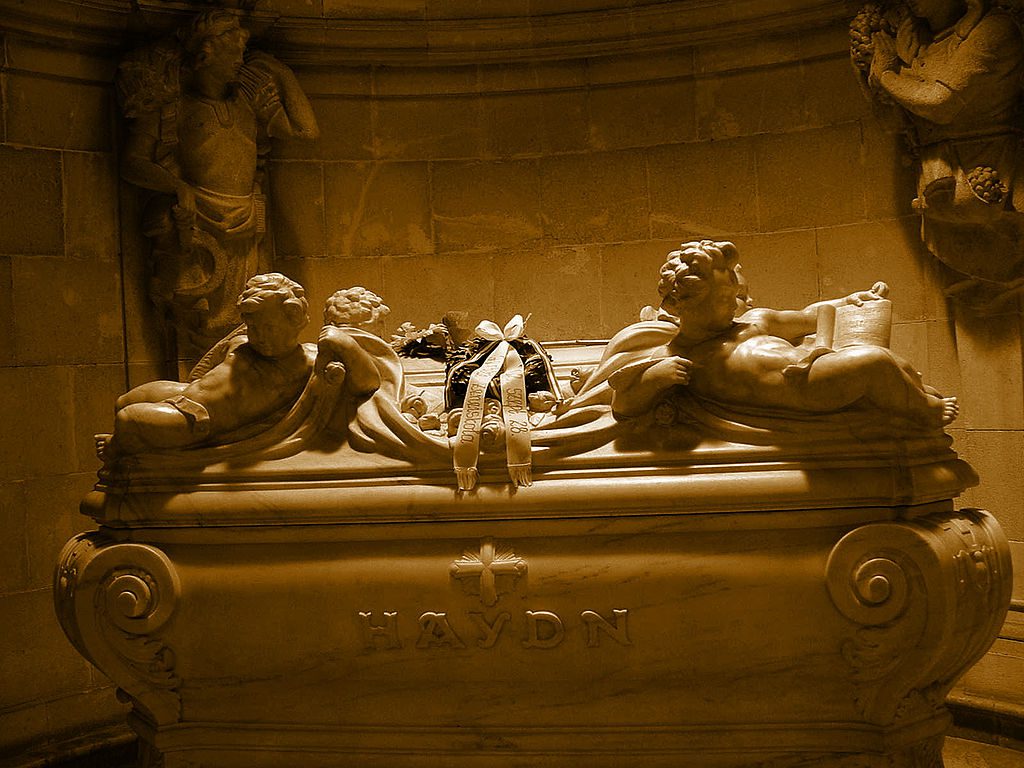The Poetics of Libel, Haydn’s Life and Music, and a Postponed Pulitzer

Good morning. Richard Bratby writes about Haydn’s generous music and life: “As Joseph Haydn was getting out of bed on the morning of 10 May 1809, a cannonball landed in his back garden. Napoleon’s armies were closing on Vienna, and Haydn’s suburban home was in the line of fire. His valet recorded that the bedroom door blew open and every window in the house rattled. Shaking violently, the 77-year-old composer’s first thought was for his household, which at that point comprised six servants and a talking parrot who addressed him as ‘Papa’. ‘Children, don’t be afraid, for where Haydn is, nothing can happen to you,’ he shouted. This was nothing particularly new. Over a long life Haydn survived smallpox, saw his house burn down (twice) and narrowly escaped castration at the hands of an overenthusiastic choirmaster. Yet he remained an optimist — by all accounts, a man of deep generosity and warmth, who infused his most human qualities into his music.”
John Prine has died. He was 73.
Matthew Belloni has resigned as editorial director of The Hollywood Reporter. “Valence had been trying to convince Belloni to give them a head’s up about stories that negatively impact their business interests, according to a knowledgable insider. There was also a growing frustration at Valence’s attempts to use the publication to push projects that it had invested in or backed.”
Recently discovered drawings for the Statue of Liberty hint at a last-minute change in the statue’s uplifted arm: “Several drawings appear to depict a bulkier shoulder and more vertical arm—a more structurally sound arrangement. But one of these sketches (below) was marked up by an unidentified hand with red ink that tilts the arm outward, as Bartholdi wanted. ‘This could be evidence for a change in the angle that we ended up with in the real Statue of Liberty . . . It looks like somebody is trying to figure out how to change the angle of the arm without wrecking the support.’”
The Pulitzer has been postponed. The board “will announce the winners in early May. The awards luncheon is also postponed.”
Two philharmonic players are reinstated after they were fired for sexual misconduct: “The New York Philharmonic has been forced by an arbitrator to reinstate two players it fired over allegations of unspecified sexual misconduct, the orchestra said on Monday night. The Philharmonic dismissed the players — its principal oboist, Liang Wang, and associate principal trumpet, Matthew Muckey — in September 2018. Both men denied wrongdoing, and the players’ union filed a grievance challenging their dismissals. The case was heard by an independent arbitrator, who found that the players had been terminated without just cause and should be reinstated.”
Essay of the Day:
In The London Review of Books, Clare Bucknell writes about the poetics of libel:
“William Godwin’s attack on aristocratic oppression in the Enquiry concerning Political Justice didn’t pull its punches. ‘Each man,’ he wrote, ‘should be wise enough to govern himself, without the intervention of any compulsory restraint; and, since government, even in its best state, is an evil, the object principally to be aimed at is, that we should have as little of it, as the general peace of society will permit.’ The publication of such sentiments in February 1793, a few weeks after the execution of Louis XVI, seemed to have more than mere philosophical speculation in mind. The Enquiry was discussed by Pitt’s cabinet in May, but although the book might have been expected to encounter the full force of the law – as Paine’s similarly argued Rights of Man (1791) had done two years earlier – Godwin wasn’t prosecuted. ‘A three-guinea book could never do much harm among those who had not three shillings to spare,’ Pitt is reported to have said. The men who had most to gain from the idea that subjects should judge the value of political institutions for themselves would never be able to afford Godwin’s book.
“If the Enquiry concerning Political Justice didn’t count as sedition, what did? When the Licensing Act wasn’t renewed in 1695, pre-publication censorship was replaced by post-publication scrutiny and prosecution under the common law of libel. As far as successive governments during the long 18th century were concerned, whether or not a publication was classed as seditious had as much to do with its medium as its message, with its accessibility to a wide readership and the likelihood of its being socially disruptive. It was also a matter of the clarity and explicitness of the text’s argument and whether it seemed to call for urgent action. The broadside Nero the Second (1715), written by an unwise former mayor of Leeds called William Cookson, was actionable on all counts: at a time of intense alarm around the first Jacobite Rising, it compared George I to Nero, threatened his destruction and called for the reinstatement of the ‘real’ royal line across the water. ‘Let us in Justice rival ancient ROME;/Let NERO’s Vices meet with NERO’s Doom,/And speed’ly call King JAMES from Exile Home.’ Cookson spent a winter in Newgate Prison.
“Using a loathed historical or literary figure as a stand-in for an unpopular contemporary one was a favourite trick of early modern writers who wanted to print sedition and get away with it (Cookson didn’t pull it off, not least because he mentioned George by name to make it clear who he really meant by ‘NERO’). The idea, in imitation of the classical writers who had developed sophisticated methods of conveying hostile political commentary, was to encode one’s writing just enough to provide a get-out clause if necessary (or to save those in charge from feeling they had no choice but to prosecute). As Quintilian explained, ‘you can speak as openly as you like against … tyrants, as long as you can be understood differently.’”
Photo: Volkmannsdorf
Receive Prufrock in your inbox every weekday morning. Subscribe here.